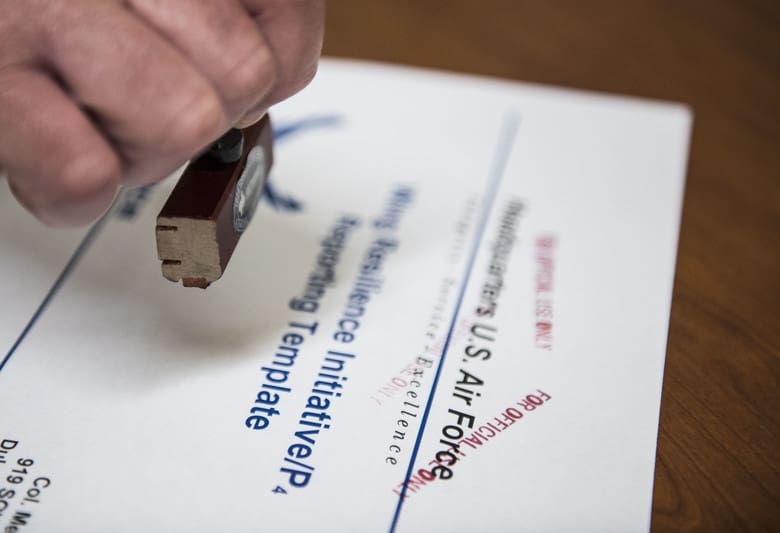DUKE FIELD, Fla. — A Citizen Air Commando wrestles to equip his night vision gear as he sets off into the desert of a foreign land. Another Citizen Air Commando monitors a screen in a dark room as she determines which life to take in the theater of conflict.

Reservists from Duke Field are all over the world performing unique missions, including some whose stories can never be told. None of these operations could be completed without a strong Operational Security program.
“We’re talking about how we protect our daily mission,” said Craig Robinson, the OPSEC program manager for the 919th Special Operations Wing. “A lot of people are so used to safeguarding classified information, they sometimes forget the unclassified but sensitive information they need to protect.”
OPSEC is a broad program encompassing logistical details about operations, such as troop movements for example, said Robinson. This information might not be classified, but it’s central to how we get our mission done. If an adversary became aware that we were moving troops from point A to point B, they could possibly hinder the operation.
“If you don’t protect OPSEC, the adversary could get that information and make a decision to act on it causing injury or death to our members,” said Senior Airman Kimberly Nelson, a radio frequency technician with the 919th Special Operations Communications Squadron. “It could also result in the mission just not happening.”
“I [often] work with cyber operations where all the information we use is important or critical,” said Nelson. “Giving out information that is critical to the mission would be considered an OPSEC violation. Just because you’re in the military or might be my friend doesn’t mean you have a need to know.”
One important OPSEC component that’s been highlighted by recent events is service-members social-media use, said Robinson. Voicing details or opinions about overseas military operations, even if it’s within the workcenter, can damage the overall mission. Airmen need to be careful about what they’re posting online. The same care needs to be taken with sharing photographs as well.
“I’ve seen my friends post pictures posing with planes and such,” said Robinson. “While it’s not classified, it’s about the overall scheme. By photographing sensitive information, we’re making folks an easy target for an adversary in a foreign country. So the less an adversary knows about our equipment, processes and personnel, the better.”
Nelson agreed and said keeping potential adversaries in the dark regarding current and future operations is the best approach.
“People don’t need to know the location where you’re deployed,” said Nelson. “They don’t need to see pictures of the equipment that you’re using because that’s no one else’s business.”
“I’ve heard stories of family members posting things about stuff,” said Nelson. “Airmen often tell their mom where they’re going, when they’re going there, what they’re doing and then what the deployed conditions are like. Then mom might post something such as, ‘I’m so proud of my Airman…he or she did this on this day. They’re coming back from overseas at this time.’ She’s being a mom and is excited, but she’s also giving out pertinent information.”
If you think that sensitive information has been released, contact your squadron’s OPSEC coordinator as soon as possible, said Robinson. That’s the focal point in each squadron that Airmen could go to if they think there’s an OPSEC problem.
“We have to be very careful when we share sensitive information,” said Robinson. “Practicing good OPSEC is the responsibility of every Airman. We all have to make sure we’re protecting details on our operations to ensure the mission goes according to plan.”
By Senior Airman Dylan Gentile, 919th Special Operations Wing


Someone remind LTC Vindman.